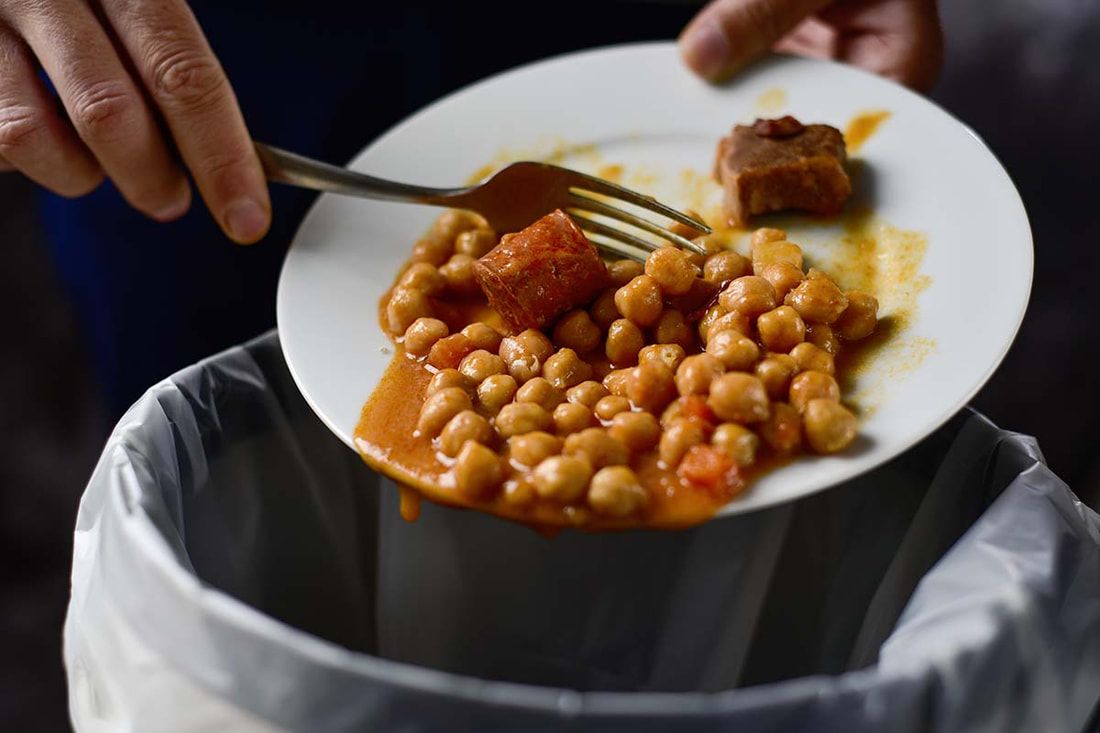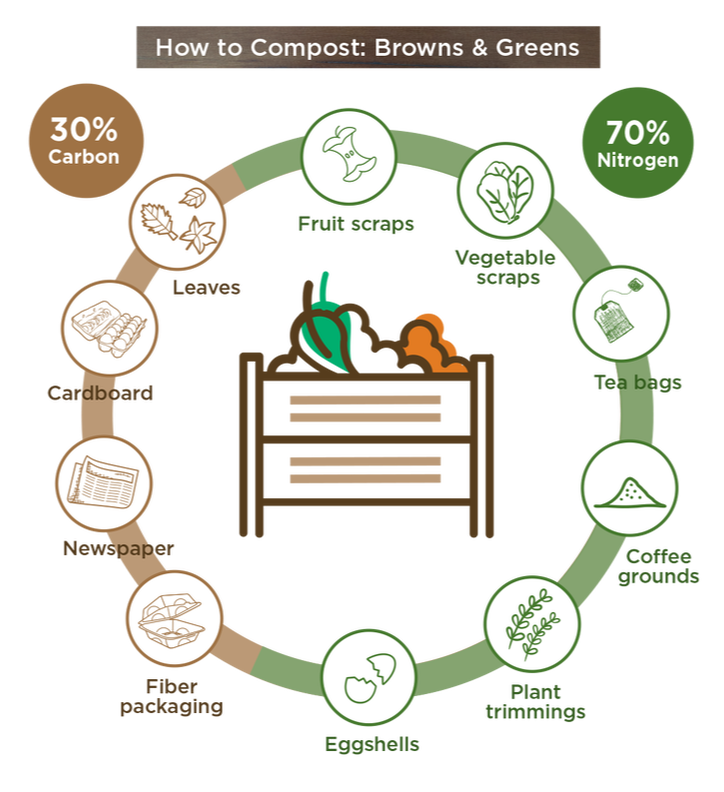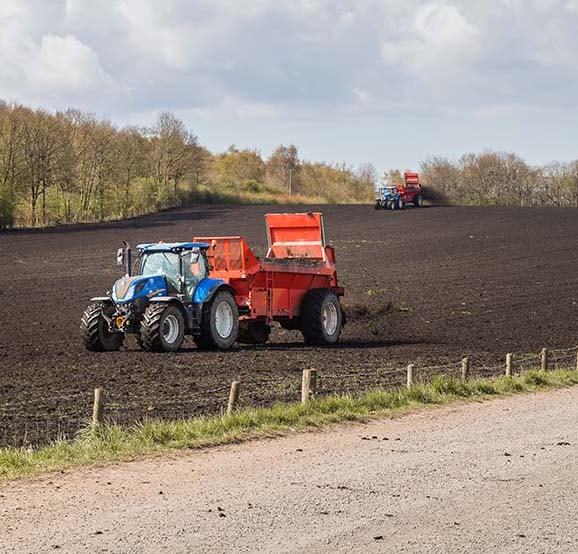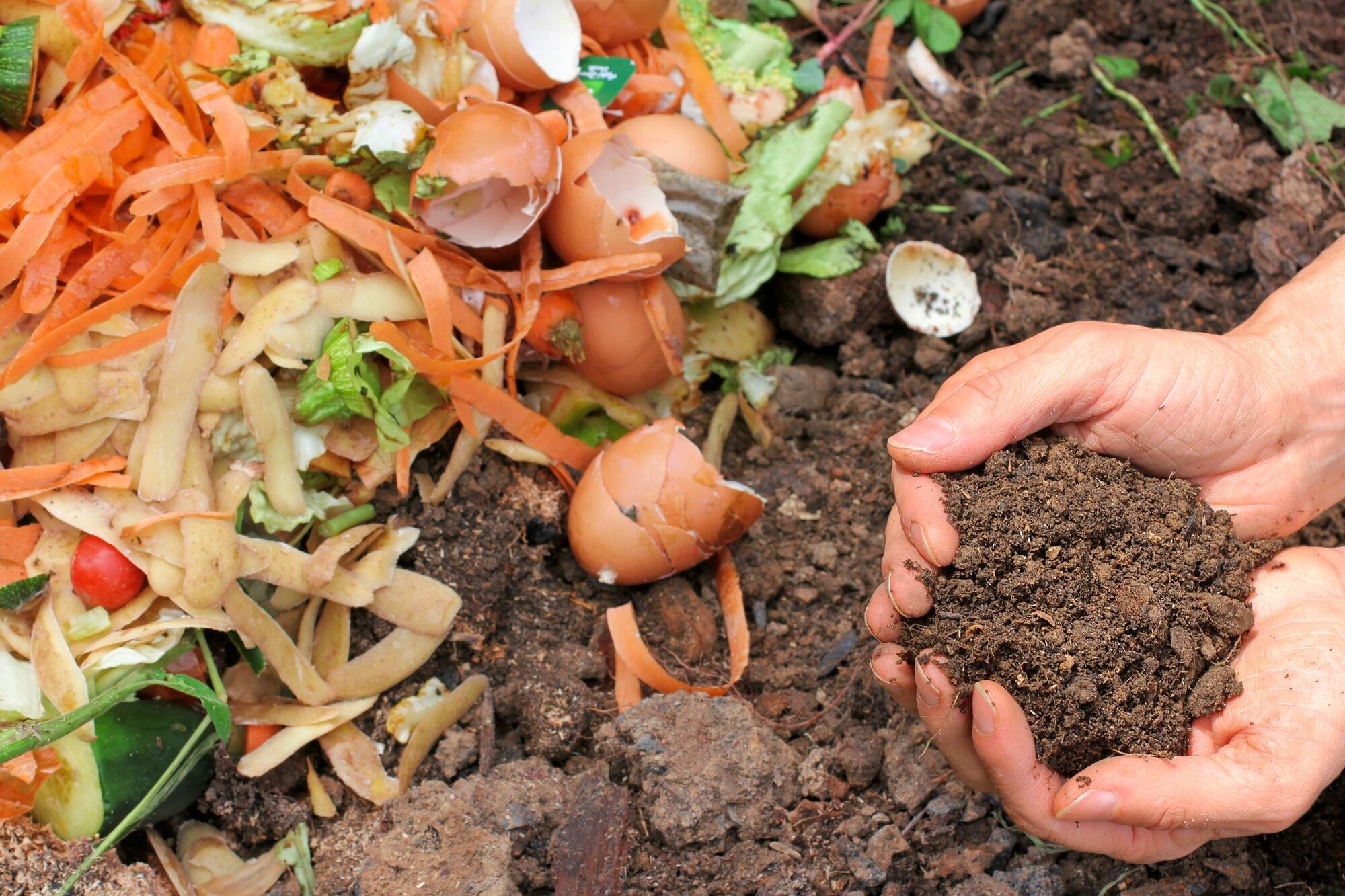Erin Levine / 6 minute read
Do you like to eat? Do you enjoy nature? Do you ever consider the symbiotic relationship your food has to the environment? It's time we started looking at food scraps as an important piece of the composting process. |
Key Takeaways:
|
Food waste is a huge problem in the U.S. and the EPA estimates that 68% of the wasted food we generate ends up in landfills or incinerated. In landfills, the food rots and doesn’t provide any benefit, in fact it produces methane, a potent greenhouse gas. While we have addressed food waste and its many facets in a previous article, here we’d like to focus on food scraps and why they’re so important to the composting process.
|
Food scraps are a necessary component to a balanced compost recipe, as they provide nitrogen. Just like a well balanced diet for humans, compost piles need both nitrogen and carbon. Carbon comes from things like wood and fibrous materials (fiber compostable packaging included) and provides energy to the microorganisms (microbes). The nitrogen rich materials like food scraps and grass clippings are necessary for protein production. The microbes know that the carbon sources give them energy while the enzyme rich nitrogen gives them protein. The balance of carbon and nitrogen is critical to making rich, sweet, earthy smelling compost.
|
Natural soil amendments, like compost, can be used in local agricultural soils as an alternative to synthetic fertilizers. Compost is known as nature’s fertilizer, since it’s made of decomposed organic material. Well balanced and high quality compost is naturally nutrient dense containing three main nutrients: nitrogen, phosphorus and potassium (NPK). Further, compost has trace minerals and micronutrients, which synthetic fertilizers lack. Once compost is incorporated with existing soil it slowly releases vital nutrients that are made available to the plant. Incorporating compost in soil improves soil health.
When growers convert from conventional agricultural practices to more regenerative options, like using compost, there are numerous benefits to both the end product and the environment.
|
Notable benefits include:
|
Using compost closes the loop of the food system: source food, consume it, compost the leftovers, use the finished compost as nature’s fertilizer and grow more food. Another huge benefit is that we can keep it local, reducing the need to transport or import.
So the next time you are preparing a meal, make sure those food scraps end up in the compost where they can do the most good. Cheers to soil health!








